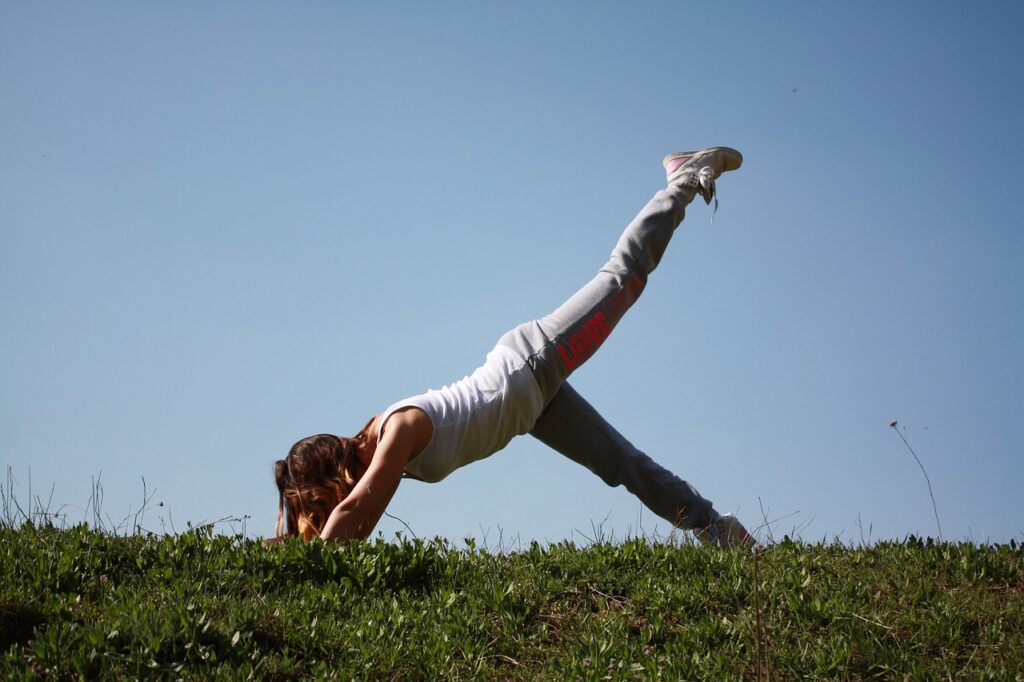Evidence Based
This article relies on solid scientific evidence, authored by experts, and thoroughly fact-checked by specialists.
Our team of licensed nutritionists and dietitians strives to maintain objectivity, impartiality, and honesty. We aim to present a fair representation of both sides of the argument.
Scientific references are included throughout this article. The numbers in parentheses (1, 2, 3) are clickable links to peer-reviewed scientific papers. These sources further support the information provided.

We’ve all been there – the euphoria of a successful workout followed by an unexpected wave of dizziness. It can be alarming, disconcerting, and sometimes even frightening. But before you jump to conclusions or panic, it’s crucial to understand that post-workout dizziness is a common occurrence that can be attributed to various factors. In this comprehensive guide, we’ll delve deep into the world of post-exercise dizziness, exploring its seven most common causes and providing actionable steps to manage and prevent it.
Introduction
Exercise is an integral part of a healthy lifestyle. It improves cardiovascular health, boosts mood, enhances fitness levels, and helps maintain a healthy weight. However, sometimes even the most experienced fitness enthusiasts can experience dizziness after a workout. This phenomenon can range from mild lightheadedness to more severe vertigo, and it can occur immediately after exercise or even several hours later.
Dizziness after exercise is not something to be taken lightly. It can be a sign of an underlying issue or simply a result of some common mistakes in your workout routine. In this blog, we will explore the seven primary causes of post-exercise dizziness and provide practical solutions to address each one.
1. Dehydration
The Culprit:
One of the most common reasons for feeling dizzy after a workout is dehydration. When you exercise, you sweat, which leads to fluid loss. If you don’t replenish the lost fluids adequately, it can result in dehydration.
Even a slight loss of body weight, ranging from 1 to 2%, known as mild dehydration, can lead to the manifestation of these symptoms. While many individuals believe that thirst serves as an initial indicator of dehydration, the reality is that by the time a person feels thirsty, they are already in a state of dehydration.
What to Do:
- Stay Hydrated: Drink water before, during, and after your workout. The American College of Sports Medicine recommends consuming at least 17-20 ounces of water two to three hours before exercise.
- Electrolytes: If you engage in intense or prolonged exercise, consider sports drinks that contain electrolytes to replace lost salts.
2. Low Blood Sugar (Hypoglycemia)
The Culprit:
Low blood sugar levels, or hypoglycemia, can occur during or after a strenuous workout, especially if you haven’t eaten properly beforehand.
What to Do:
- Pre-Workout Nutrition: Consume a balanced meal or snack 1-2 hours before exercise, including carbohydrates, protein, and healthy fats.
- Post-Workout Nutrition: After your workout, refuel with a combination of carbohydrates and protein to stabilize blood sugar levels.
3. Overexertion
The Culprit:
Pushing yourself too hard during a workout can lead to overexertion, causing dizziness, nausea, and even fainting.
Based on research conducted in 2015, overexertion injuries constitute 36.2% of the total injuries reported at fitness facilities (1
PubMed Central
Highly respected database from the National Institutes of Health
Go to source ).
What to Do:
- Listen to Your Body: Pay attention to your body’s signals. It’s essential to challenge yourself, but not to the point of extreme exhaustion.
- Warm-up and Cool Down: Always start with a warm-up and end with a cool-down to gradually increase and decrease your heart rate.
4. Low Blood Pressure (Orthostatic Hypotension)
The Culprit:
A sudden drop in blood pressure when transitioning from sitting or lying down to standing can cause dizziness. This condition is known as orthostatic hypotension.
What to Do:
- Slow Transitions: When standing up after a workout, do so gradually. This allows your body time to adjust to the change in position.
- Stay Hydrated: Adequate hydration can help prevent low blood pressure episodes.
5. Poor Breathing Techniques
The Culprit:
Improper breathing during exercise can lead to a decrease in oxygen supply to the brain, resulting in dizziness.
What to Do:
- Focus on Breathing: Pay attention to your breath. Inhale and exhale rhythmically and deeply during your workout.
- Practice Breathing Exercises: Incorporate breathing exercises like diaphragmatic breathing into your routine to improve oxygen flow.
6. Postural Hypotension
The Culprit:
Postural hypotension occurs when there’s a drop in blood pressure upon standing. This can be more common in older adults but can affect anyone.
What to Do:
- Change Positions Slowly: Avoid abrupt changes in posture. If you’re sitting or lying down, sit up slowly before standing.
- Stay Hydrated: As with orthostatic hypotension, adequate hydration can help prevent postural hypotension.
7. Underlying Medical Conditions
The Culprit:
In some cases, persistent post-exercise dizziness can be a sign of an underlying medical condition, such as heart problems or anemia.
What to Do:
- Consult a Healthcare Professional: If you frequently experience dizziness after exercise, especially if it’s severe or accompanied by other symptoms, consult a healthcare provider to rule out any underlying issues.
Conclusion
Dizziness after a workout is a common occurrence, but it can often be prevented or managed by making simple adjustments to your exercise routine and lifestyle. Remember that everyone’s body is unique, so it may take some trial and error to determine the exact cause of your post-exercise dizziness.
The key takeaway here is to prioritize your health and safety. Listen to your body, stay hydrated, fuel it with the right nutrients, and don’t hesitate to seek medical advice if dizziness persists or worsens. With the right precautions and knowledge, you can continue to enjoy the numerous benefits of exercise without the unwelcome aftermath of dizziness. Stay fit, stay healthy!
Now that you’re armed with this comprehensive guide, you can confidently tackle post-workout dizziness and pave the way for a more enjoyable and fulfilling fitness journey. Remember, knowledge is power, especially when it comes to your health and well-being. So, go ahead, lace up those sneakers, and let your workout be a source of strength and vitality, not dizziness and confusion.




